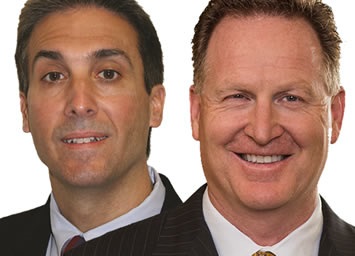For example, the very same medications that are so critical for alleviating pain in legitimate patients could easily be diverted and misused by other people. In addition, something as basic as failing to discard old, unused medications could lead to abuse.
Now, more than ever, we need to create awareness and dialogue about appropriate access to pain management and responsible use of pain medications, including proper disposal, to ensure that legitimate patients continue to have access to the medications they need and to help reduce prescription drug abuse.
What are the main warning signs pharmacists should look for to identify a potential abuser?
Carmen Catizone: There are no specific criteria for identifying a potential abuser. Every situation is unique and will need to be evaluated at the time using the information available and the professional judgment of the pharmacist.
However, with that in mind, there are some behaviors or situations that generally should cause concern and identified as possible red flags indicative of potential abuse and diversion. These include:
- Behavior of the person presenting the prescription - are they agitated, nervous, or behaving in a suspicious manner?
- Situation surrounding the presentation of the prescription – did they arrive in a group, are locations of the prescriber, pharmacy, and patient in relation to one another geographically inconsistent, that is, significant distances apart for no logical reason, or is there activity occurring such as the presentation of large amounts of cash or the exchange of cash among customers?
- Prescription – there are several areas of consideration concerning the actual prescription, the medication, strength, quantity, and combination of medicines.
Why should pharmacists be cautious of customers who present in groups?
Carmen Catizone: The caution that exists with patients arriving in groups is best explained by looking at two questions pharmacists should ask themselves - what normally occurs when a patient presents a prescription and what has experiences and information from law enforcement agencies taught us about the diversion and abuse of controlled substances?
The first question can be answered by anyone who has ever had their prescription filled at a pharmacy. The usual scenario is for a patient to present a prescription issued by a prescriber to the pharmacist. Doing so does not involve traveling with a group and presenting at the pharmacy at the same time.
The plausibility of a group of people seeing the same prescriber on the same day and then traveling as a group to the same pharmacy seems incredibly low and frankly, just isn’t the norm and doesn’t make sense.
This is borne out from our experience in detecting and combatting prescription drug abuse and diversion and information from law enforcement agencies. In instances where abuse and diversion occurs and occurred, people traveling in groups has been a consistent red flag.
How can a pharmacist decide whether a prescription passes the truth test?
Carmen Catizone: A pharmacist is educated and trained to evaluate situations every day and with every patient in order to make a decision on whether a prescription is for a legitimate medical need and thus pass the truth test.
The decision draws from the extensive training and education a pharmacist receives prior to being licensed to practice and the red flags that should be detected when the prescription is presented.
What questions should a pharmacist ask to question the validity of a prescription?
Carmen Catizone: There are a number of questions a pharmacist should ask when evaluating the validity of a prescription. The questions should focus on the reason for the issuance of the prescription, the patient’s understanding of what the prescription was issued for (symptoms or medical condition), the relationship between the patient and the prescriber, and information about the patient concerning allergies, other medications being taken, and special considerations.
Such an interaction will alert the pharmacist to important red flags that will help with making the decision on whether the prescription is for a legitimate medical purpose.
How are Mallinckrodt reinforcing responsible pain management?
Mark Trudeau: Mallinckrodt is committed to ensuring the appropriate use of prescription pain medicines. We are investing in the use of abuse-deterrent technology, actively working to integrate federal and state prescription drug monitoring programs, enhancing suspicious order monitoring, drug take-back, addiction, and rehabilitation programs, collaborating with other organizations to promote proper disposal methods and developing and sharing best practices and stakeholder education for patients, providers and the public at large.
What are Mallincrkodt’s plans for the future?
Mark Trudeau: We are focusing on what we do well, which is in the controlled substance therapeutic space, and advancing our specialty pharmaceutical internal pipeline.
Within the pain treatment arena, we will continue to strive for a balance between access to pain management medications for legitimate patients with appropriate use and disposal to help combat abuse and diversion. That’s where our focus has been and will continue to be.
Where can readers find more information?
http://www.mallinckrodt.com/
https://nabp.pharmacy/
About Mark Trudeau and Carmen Catizone
 Mark C. Trudeau is President and Chief Executive Officer of Mallinckrodt Pharmaceuticals.
Mark C. Trudeau is President and Chief Executive Officer of Mallinckrodt Pharmaceuticals.
Carmen Catizone is the Executive Director, National Association of Boards of Pharmacy (NABP),Secretary of the NABP Executive Committee, and also serves as a member of the Board of Governors on the Pharmacy Technician Certification Board and as Chair of the Certification Council.